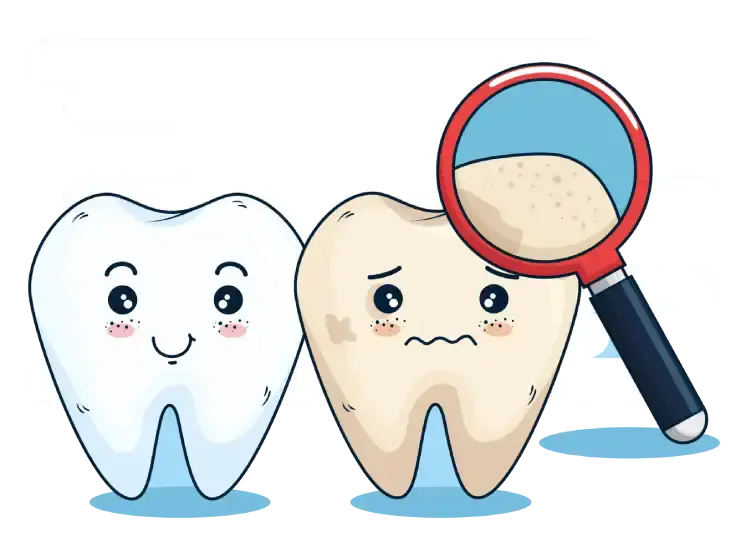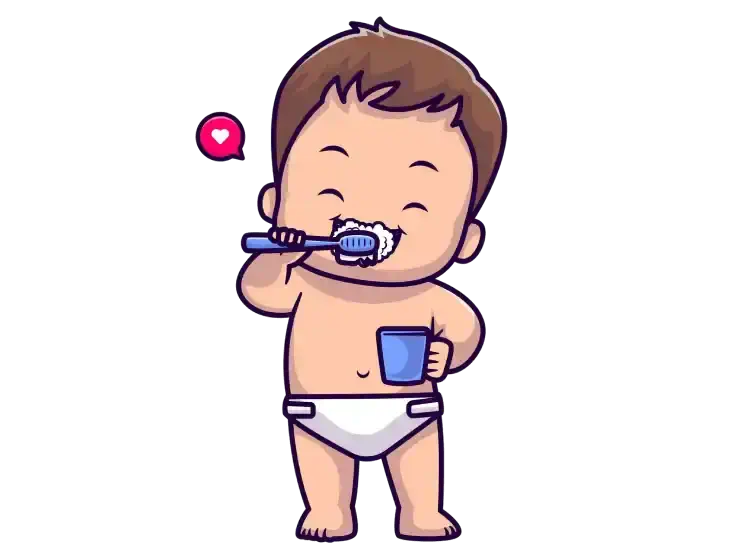Canker Sores:
How to Get Rid of Them
Last Updated: June 18, 2025
🕒 6 min read
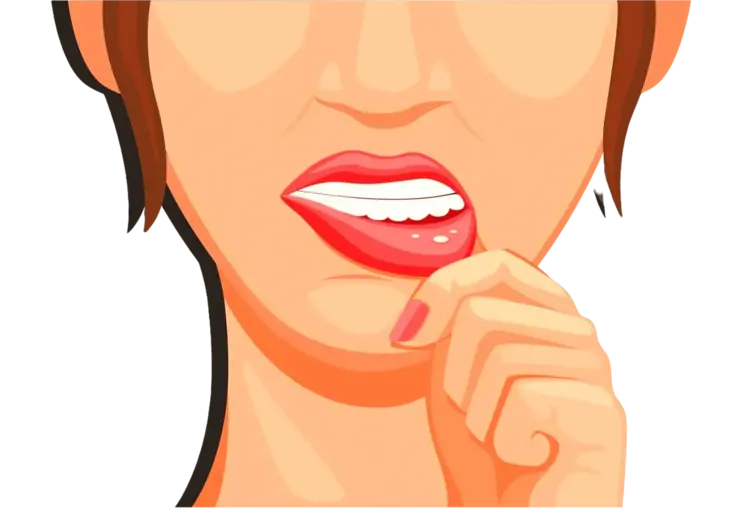
🚀 Canker Sores – Quick Info
- Canker sores are small, painful wounds inside the mouth that are around 1/8 to 3/8 of an inch in size (3-10 mm) and usually between 1 to 5 sores appear at the same time.
- Pain goes with the size of the sores, it’s annoying, but mostly it’s not something to worry about.
- Usually, they go away within 7–10 days by themselves.
- They can be triggered by stress or hormonal changes.
- They are not contagious so your partner is safe. 🙂

It’s the same as with a cold, if you treat it, it will go away in a week, but if you don’t, it will go away in 7 days. 🤓
In case they cause a lot of discomfort, you can check some of the treatments below or just keep reading to gather more details.
🧐 More Info on Canker Sores
Canker sores (Aphthae, Oral ulcers), to describe them better, are round or oval ulcers with a white or yellowish center and a red border. They usually appear on the inside of the cheeks, lips, under, or on the side of the tongue.
Types of canker sores:
-
Minor Canker Sores
Or what people think when you say - canker sores.
It is the most common type with 80% of cases. They are small (3-10 mm), heal in 7–10 days, and don’t leave scars.
Before they appear, sometimes there is a burning or tingling sensation and most frequently they are localized on the inside of the cheeks and lips, but also the side of the tongue, mouth floor, and soft palate. -
Major Canker Sores
In comparison to the minor type, they are deeper and larger, 0.5 - 1 inch in diameter, and more painful.
It takes longer to heal, 2 to 6 weeks, and may leave scars.
Some sores can be from 1 to 10 and they are usually located on the soft palate, tonsils, or the back of the lips.
Usually, they appear after puberty, and they can have recurrences. -
Herpetiform Canker Sores
This type has the most number of sores and the most frequent recurrences.
They are small, 1-3 mm in diameter, and can appear in clusters of 10 to 100 sores.
It resembles the herpes virus infection, but actually, it’s not.
❓ Potential Causes of Canker Sores?
The cause appears to be “different things in different people”, and it can be a combination of them.
But common triggers include:
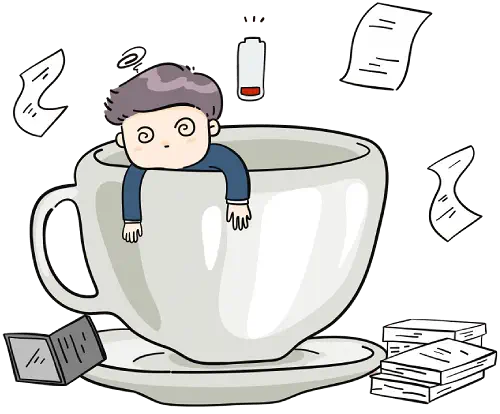
- 😰 Stress & Fatigue – Physical and mental stress can be a trigger, so since mostly the younger population below 30 is affected, if you study hard or have some exhausting training or working hours, it can contribute to canker sores appearing.
- 🧬 Genetics – If your parents had them, you might get them too.
- 🦷 Mouth Injuries – Sometimes biting your cheek, brushing too hard, having a hard toothbrush, or even dental work - tooth extractions, dental surgery, etc., can be the cause.
- 🔄 Hormonal Changes – This is mostly regarding a woman’s menstrual cycles.
- 🍞 Food Sensitivities & Deficiencies – sensitivity to gluten, dairy, or on the other hand, a lack of B12, iron, or folic acid.
- 🪥 Check your toothpaste – Some people react to sodium lauryl sulfate (SLS), found in many toothpastes.
🏥 How to Treat Canker Sores
Most of the time, you don’t need any special treatment.
When there are just mild symptoms, keeping oral hygiene good, avoiding trigger foods (spicy, acidic, or rough-textured foods), and reducing stress by eating a balanced diet and getting enough sleep should do it.
If it’s troubling you, first of all, you should schedule a visit with your dentist. He can then diagnose it and see if it’s just canker sores or if it’s something that can be related to some other disease that includes canker sores as a symptom.
Still, for first aid, you can first try out some of the natural remedies at home.
If that doesn’t help, then try some of the over-the-counter products or dental office treatment options with consultation with your dentist.
🩹 Home Treatments for Canker Sores
You can try these at home to help soothe the pain and speed up healing. I would advise starting with the natural remedies first.
If that doesn’t help, you can try some over-the-counter products with consultation with your dentist.
🌿 Natural & Home Remedies

Gentle and time-tested — these can reduce pain and inflammation without any side effects:
-
🍃 Sage or 🌼 Chamomile Tea Rinses
Sage is known for its healing effects on oral soft tissues.
That is why its usage is working so well on traumas produced by accidental cheek bites or dental procedures that can cause trauma to oral tissues.
Use 1 tsp of dried sage or chamomile in a cup of hot water for 10 minutes. Strain and let it cool. Swish in your mouth for 30 seconds, then spit out. Repeat 2-3 times a day. -
🍯 Honey & Propolis
Try to find a 100% natural honey and just dab it directly on the sore — it has an antibacterial effect and it can speed up the healing process.
Same with propolis, usually you can find it in a pharmacy as a gel or tincture. You can consult with a pharmacist about the best one for you and how to use it. -
🥥 Coconut oil
Swish or dab on the sore — helps with healing and has mild antimicrobial effects. -
🧂 Baking soda or salt rinse
Baking soda balances pH and reduces irritation.
Dissolve ½ tsp of salt or baking soda in a cup of warm water and swish several times a day.
🛒 Over-the-counter (OTC) Products
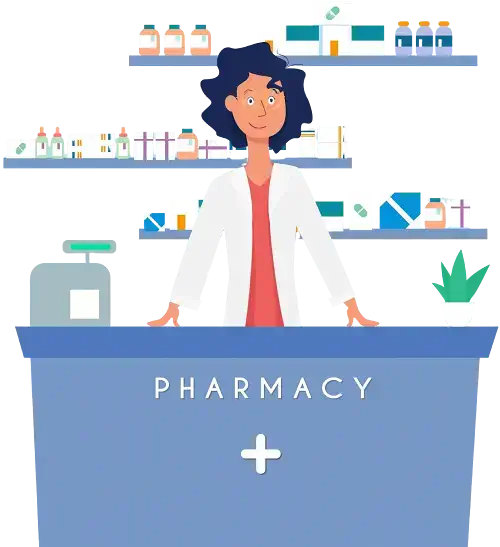
For OTC products, always make sure to read the instructions carefully.
If it’s the first time that you use a product, if you are unsure or have some doubts, it would be wise to first consult with your dentist or pharmacist.
But for most people without any serious health conditions, these products are considered safe to use.
-
Mild Anesthetics:
Benzocaine gels (e.g., Orajel, Anbesol, Zilactin-B, Orabase) numb the area and ease pain temporarily.
It’s been applied directly to the sore for minor pain relief, but it doesn’t speed up the healing.
It’s useful in cases where the sore is very painful and you need to eat or drink something.
It can be used for a few days, but not more than 7 days in a row.
Use with caution and avoid in children under 2 years old. -
Mouthrinses for Soothing or Cleaning:
Chlorhexidine mouthwash (Peridex or generic) – A regular mouthwash containing chlorhexidine can help prevent germs from spreading and worsening the canker sore. It can also help avoid further inflammation. However, you’ll want to avoid mouthwash that contains alcohol because it can irritate the sore.
🦷 Treatment at a Dental Office
- Laser Treatment - Laser therapy involves the application of focused light energy to the canker sore, which alleviates pain, promotes healing, and reduces recurrence.
This is done only in dental offices since it requires special equipment and training.
🔄 How to Prevent Canker Sores

- Eat a balanced diet – Get enough iron, B12, and folic acid to keep your mouth healthy.
- Reduce stress – Relaxation techniques like deep breathing or exercise can help.
- Avoid trigger foods - spicy, acidic, or rough-textured foods. Alcohol can also harm the mucosa.
- Use a soft toothbrush and be gentle while brushing.
- Check your toothpaste – Some people react to sodium lauryl sulfate (SLS), found in many toothpastes. Try switching to an SLS-free toothpaste like Sensodyne Pronamel.
- Reduce smoking - Some patients noticed that switching to other e-cigarette variants or quitting smoking completely helped them with canker sores.
🚨 When to See a Dentist or Doctor

Most canker sores are harmless, but you should see a dentist or a doctor if:
❗ Sores last longer than 2 weeks.
❗ They keep coming back too often.
❗ They are very large and painful.
❗ You also have fever, swollen glands, or difficulty eating.
In these cases, it’s best to check with a healthcare provider to rule out underlying conditions or consider stronger treatment.
Canker sores may be annoying, but with the right care, they heal quickly. If they keep coming back, try identifying your triggers and adjusting your diet or oral care routine. Stay healthy! 😊
Author: DMD Alexander K.

